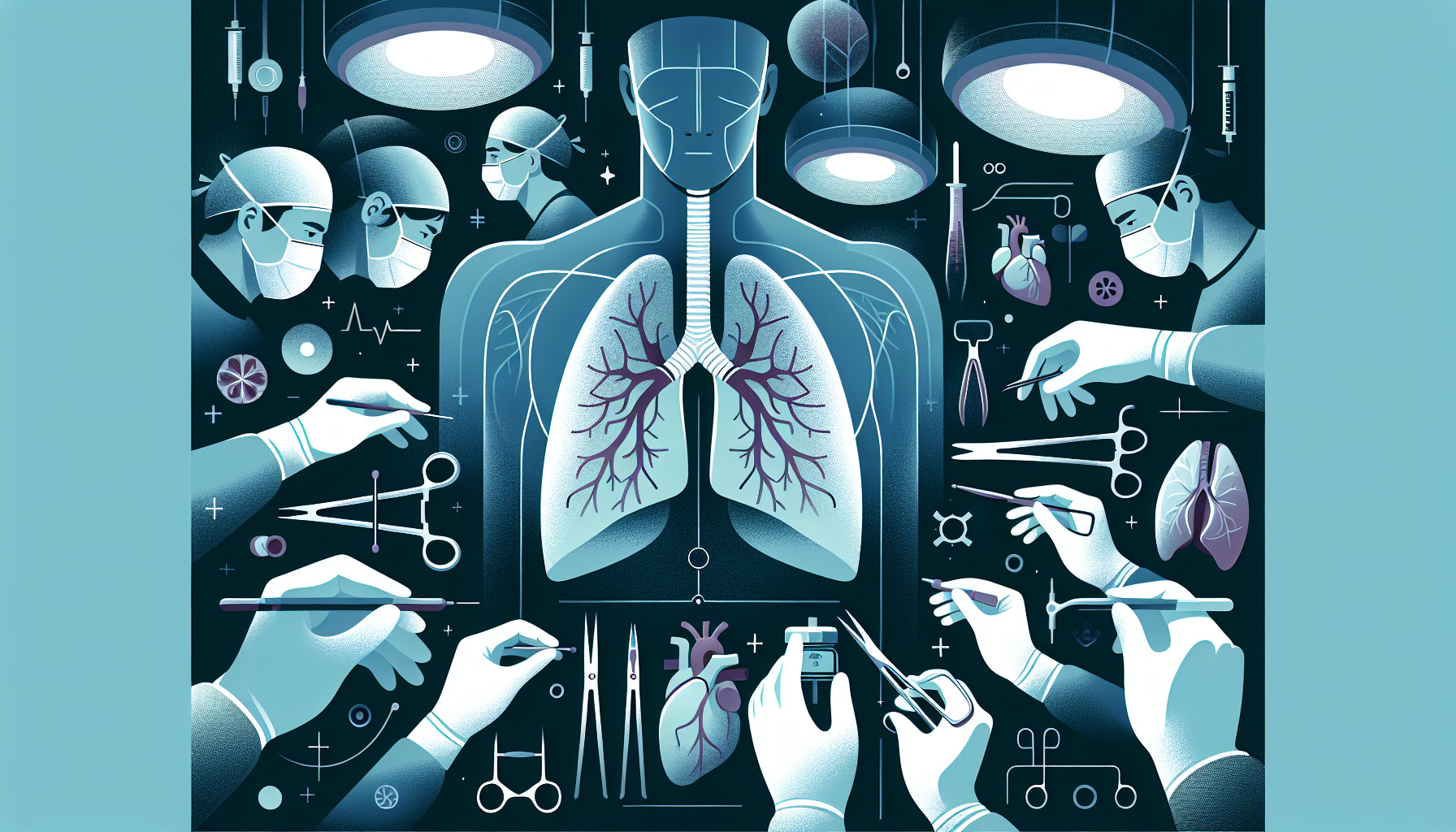Our Summary
The study is about how long-term lung diseases can lead to increased oxidative stress in the body, which is a harmful condition where the body’s antioxidant defenses are out of balance. This condition is even worse in people who are waiting for a lung transplant because their lungs are in very bad shape.
The researchers wanted to understand if a certain biological process, called thiol-disulfide homeostasis, could be used to measure the level of oxidative stress. This process involves two chemicals in the body, thiol and disulfide, which usually exist in a balance. When this balance is disrupted, it can indicate oxidative stress.
The study involved 40 patients who needed a lung transplant and 40 healthy people for comparison. The researchers found that the patients waiting for a lung transplant had lower levels of thiol (which is an antioxidant) and higher levels of disulfide (which is an oxidant), suggesting that there was indeed more oxidative stress in these patients.
Moreover, the researchers found that the levels of thiol and disulfide could be used to predict the severity of the patients’ lung disease, as measured by a score that doctors use to decide who should get a lung transplant first.
During the study, six of the patients received a lung transplant. After the transplant, the patients’ levels of thiol and disulfide improved, suggesting that the transplant had a positive effect on their oxidative stress.
In conclusion, measuring the balance of thiol and disulfide could be a useful way to detect and monitor oxidative stress in patients with severe lung disease. This could help doctors to better understand the severity of the disease and the potential benefits of a lung transplant.
FAQs
- What is the relationship between oxidative stress and long-term lung diseases?
- How can the balance of thiol and disulfide be used to measure oxidative stress in patients needing lung transplants?
- According to the research, what changes were observed in patients’ thiol and disulfide levels after a lung transplant?
Doctor’s Tip
One helpful tip a doctor might tell a patient about lung transplant is to maintain a healthy lifestyle before and after the transplant. This includes following a nutritious diet, staying physically active, avoiding smoking and exposure to secondhand smoke, and attending all follow-up appointments with healthcare providers. Taking care of your overall health can help improve the success of the lung transplant and your overall well-being.
Suitable For
Patients who are typically recommended for a lung transplant are those with severe lung diseases such as chronic obstructive pulmonary disease (COPD), idiopathic pulmonary fibrosis, cystic fibrosis, and pulmonary hypertension. These patients have significant lung damage that cannot be effectively treated with medications or other therapies, and a lung transplant is often the best option for improving their quality of life and increasing their chances of survival.
Timeline
Before lung transplant: Patients with long-term lung diseases experience increased oxidative stress due to their poor lung health. They may be on a waiting list for a lung transplant, undergoing evaluations to determine their eligibility for the procedure.
During lung transplant: Patients undergo a lung transplant surgery, where a healthy lung is transplanted to replace their diseased lung. The surgery can take several hours, and patients are monitored closely in the intensive care unit post-surgery.
After lung transplant: Patients undergo a period of recovery, where they may experience complications such as organ rejection or infection. They will need to take immunosuppressant medications for the rest of their lives to prevent rejection of the transplanted lung.
Long-term after lung transplant: Patients will need to attend regular follow-up appointments with their healthcare team to monitor their lung function and overall health. They may need to make lifestyle changes, such as quitting smoking and maintaining a healthy diet, to support their new lung.
What to Ask Your Doctor
Some questions a patient should ask their doctor about lung transplant include:
- What are the potential risks and benefits of a lung transplant for my specific condition?
- How will the transplant process affect my overall health and quality of life?
- What criteria are used to determine if I am a suitable candidate for a lung transplant?
- How long is the typical waiting time for a lung transplant, and what factors can affect this timeline?
- What are the potential complications or side effects of a lung transplant surgery?
- How will I need to prepare for the transplant surgery, both physically and emotionally?
- What is the success rate of lung transplants for patients with my particular lung disease?
- What is the post-transplant care and medication regimen like, and what lifestyle changes will I need to make?
- How often will I need to follow up with my transplant team after the surgery?
- Are there any alternative treatments or therapies that I should consider before opting for a lung transplant?
Reference
Authors: Sahin MF, Beyoglu MA, Yazicioglu A, Turkkan S, Yiğit Özay H, Akbulut ED, Neselioglu S, Erel O, Yekeler E. Journal: Exp Clin Transplant. 2023 Jun;21(6):526-533. doi: 10.6002/ect.2022.0003. Epub 2022 Jul 22. PMID: 35867015
